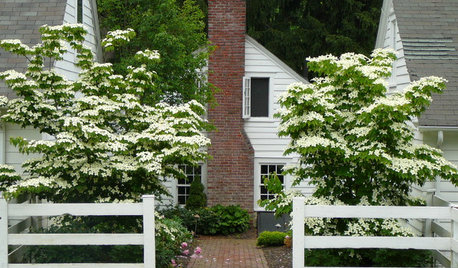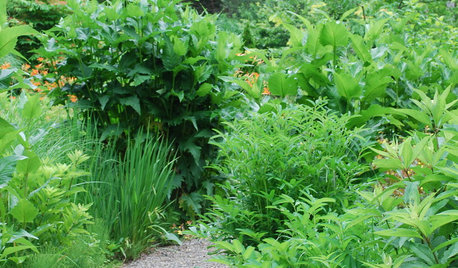Freshly mulched/chipped branches question
Julia WV (6b)
14 years ago
Featured Answer
Sort by:Oldest
Comments (10)
idaho_gardener
14 years agojeannie7
14 years agoRelated Professionals
Summit Landscape Architects & Landscape Designers · Tomball Landscape Architects & Landscape Designers · Frisco Landscape Contractors · Davis Landscape Contractors · Dedham Landscape Contractors · Hickory Hills Landscape Contractors · Oviedo Landscape Contractors · Santa Maria Landscape Contractors · Webster Groves Landscape Contractors · Cave Spring Decks, Patios & Outdoor Enclosures · Brooklyn Park Decks, Patios & Outdoor Enclosures · Hobart Decks, Patios & Outdoor Enclosures · Mastic Decks, Patios & Outdoor Enclosures · Northbrook Decks, Patios & Outdoor Enclosures · Urbana Decks, Patios & Outdoor Enclosuresalphonse
14 years agoJulia WV (6b)
14 years agobpgreen
14 years agoKimmsr
14 years agoJulia WV (6b)
14 years agobpgreen
14 years agorickd59
14 years ago
Related Stories

GARDENING GUIDESNew Ways to Think About All That Mulch in the Garden
Before you go making a mountain out of a mulch hill, learn the facts about what your plants and soil really want
Full Story
GARDENING GUIDESGarden Myths to Debunk as You Dig This Fall and Rest Over Winter
Termites hate wood mulch, don’t amend soil for trees, avoid gravel in planters — and more nuggets of garden wisdom
Full Story
BEDROOMSHouzz Quiz: What Color Should You Paint Your Bedroom Walls?
Cool and soothing, or warm and spicy? Answer these questions and learn what hue is right for you
Full Story
EDIBLE GARDENSSummer Crops: How to Grow Tomatoes
Plant tomato seedlings in spring for one of the best tastes of summer, fresh from your backyard
Full Story
KITCHEN DESIGNKitchen of the Week: Making Over a Rental for About $1,500
Fresh paint, new hardware, added storage, rugs and unexpected touches breathe new life into a Los Angeles apartment’s kitchen
Full Story
MOST POPULAR20 Ways to Work White Magic in Your Yard
Create enchanting outdoor spots with fresh white fences, florals and furniture
Full Story
FALL GARDENING5 Ways to Put Fall Leaves to Work in Your Garden
Improve your soil and yard the organic way with a valuable garden booster that grows on trees
Full Story
EARTH DAYThe Case for Losing the Traditional Lawn
Work less, help the environment and foster connections by just saying no to typical turf
Full Story
GARDENING GUIDESSolve 3 Common Landscape Problems — With More Plants
Sometimes the best defense is a good offense
Full Story
WHITEWhat to Know Before You Paint Your Walls White
A coat of white paint can do wonders in one room and wreak havoc in another. Here are tips for using the popular hue
Full StoryMore Discussions



bob64